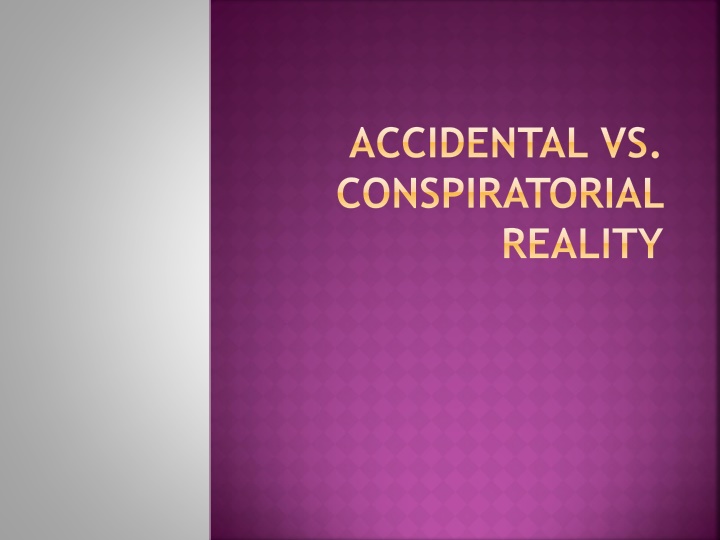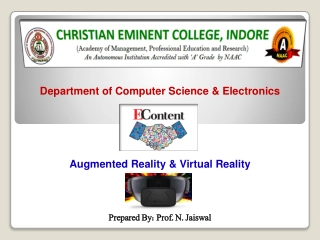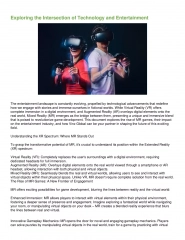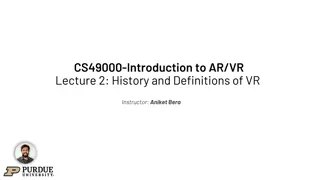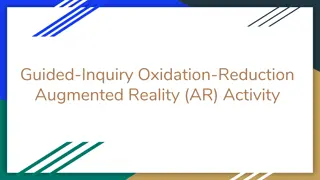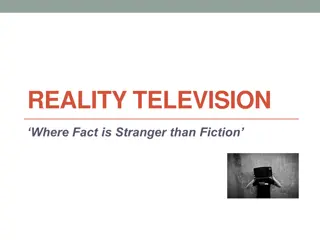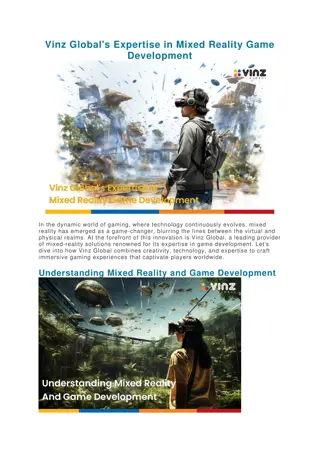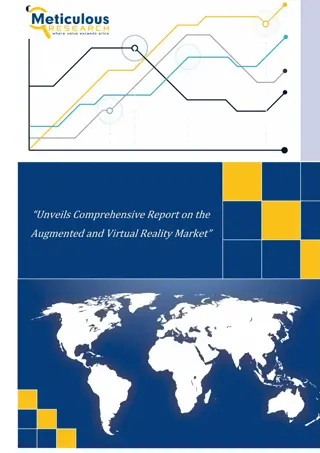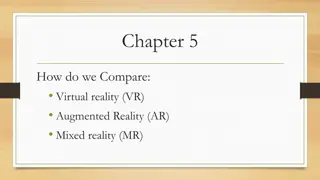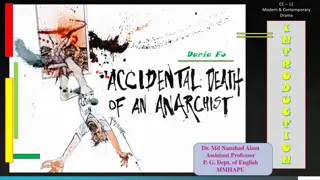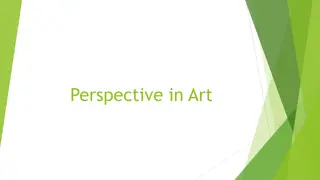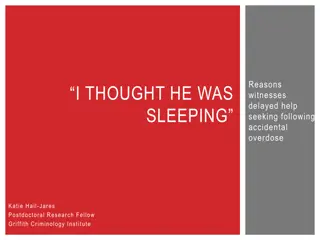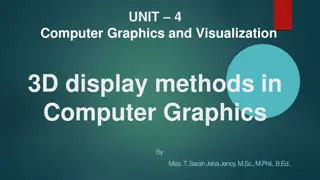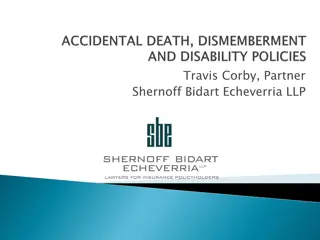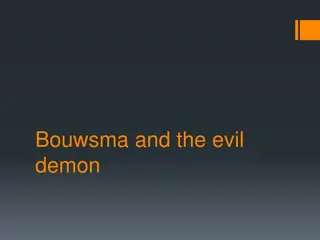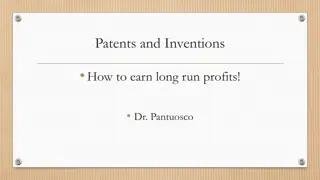Accidental vs Conspiratorial Reality: A Different Perspective
Delve into the concept of accidental versus conspiratorial frameworks in interpreting historical events and contemporary life. Explore the intriguing mix of ideas that most individuals adopt, and how these frameworks influence our conclusions and perceptions of causality.
Download Presentation

Please find below an Image/Link to download the presentation.
The content on the website is provided AS IS for your information and personal use only. It may not be sold, licensed, or shared on other websites without obtaining consent from the author.If you encounter any issues during the download, it is possible that the publisher has removed the file from their server.
You are allowed to download the files provided on this website for personal or commercial use, subject to the condition that they are used lawfully. All files are the property of their respective owners.
The content on the website is provided AS IS for your information and personal use only. It may not be sold, licensed, or shared on other websites without obtaining consent from the author.
E N D
Presentation Transcript
ACCIDENTAL VS. CONSPIRATORIAL REALITY
ACCIDENTAL/COINCIDENTAL VS. CONSPIRATORIAL FRAMEWORKS Some people tend to see the event of history and of contemporary life as accidental or coincidental. For example, evolution is an accidental theory of origins. Others tend to see those events as being caused or controlled by people or forces behind the scenes. For example, creation or intelligent design is a conspiratorial framework. It implies that God or some supernatural being created us for a purpose.
A MIXTURE OF IDEAS Most people do not operate exclusively within either framework, but switch back and forth between the two. This does not necessarily imply a 50-50% breakdown. Most probably use one preferred framework more often, but the other in certain areas of thought, or at certain times. The context of the issue will make a difference along with the individual s, worldview, religion, etc.
APPLIES TO SITUATIONS WHERE CAUSES/REASONS ARE NOT VERIFIABLE When the cause is physically obvious or where it is easily reasoned from known facts, these distinctions in thinking do not apply.
WHAT ARE SOME EXAMPLES? What do you believe UFO s really are? What is your soul-mate? Do you have one? Does America have a shadow government? How much would you be willing to bet on your team winning the game? Do you think that you were born for such a time as this? If you have a friend killed in an accident, do you say he/she was at the wrong place at the wrong time , or do you say that his/her number was up ?
MORE DIFFICULT EXAMPLES Why has America become so much friendlier to socialism? Why has American morality become so much looser? Why is there so much more autism, ADHD, Alzheimer's, diabetes, etc. For these questions, we know that forces are behind the changes, but we don t know if someone has brought them about on purpose to suit their agenda.
CONCLUSION In short, our conclusions, our assumptions, our attribution of motives, and our assessment of outcomes will be influenced by whether we are thinking accidentally or conspiratorially.
PREMODERN, MODERN & POSTMODERN FRAMEWORKS FOR THINKING
Premodernism, Modernism, Postmodernism: Historical changes in the Intellectual Thinking Framework among Academics and Intellectuals MOST OF THIS INFORMATION WAS GLEANED FROM POSTMODERN TIMES: A CHRISTIAN GUIDE TO CONTEMPORARY THOUGHT AND CULTURE BY GENE E. VEITH, JR, 1994 (CROSSWAY BOOKS, WHEATON, IL)
PRE-MODERNISM Belief in the supernatural, a spiritual reality from which life gains its meaning Nature is God s creation. Human beings are sinful, but valuable and the object of God s salvation. The physical world is orderly and knowable. Truth is objective and there are absolutes. Man, society and nature are not operating autonomously, but depend upon the sovereignty of God.
The supernatural was discounted, ignored. Religion was replaced with reason. The sovereignty of God was replaced with the sovereignty of human reason (operating on the data of the senses). (science) Sought a rational religion (deism), where God created the universe and abandoned it to man. Morality became utilitarian. Materialism The only reality is what we can sense. THE TRANSITION FROM PREMODERNISM TO MODERNISM
MORAL UTILITARIANISM Things are understood by causes effect within a closed system. Actions are good if they make the system (society) work and evil if they do not. (Can justify slavery, child labor, abortion, euthanasia, etc. under this system)
Birth of the social sciences Can apply scientific methods to study people and groups/societies. Can construct or engineer societies and economies. Karl Marx: Communist society will have no private property, no religion, and individualism and native cultures will be suppressed. Existentialism. There is no inherent meaning or purpose in life. There are only the orderliness of nature and logical conclusions. Relativism People must create their own meanings. What s true for you may not be true for me. Since meanings are personal and subjective, they must all be equally valid. It becomes impolite or politically incorrect to tell anyone that you think they are wrong. RESULTS OF MODERNISM
POSTMODERNISM Modernism peaked in the 20thCentury. Postmodernism challenged its belief in linear progress, absolute truth, rational planning, standardization of knowledge, and totalization of chaos the imposition of order which would be treated as objective and universally binding. Postmodernism sought to replace it with reality as a social construct where order is only provisional and varies from person to person. It embraces fragmentation and indeterminacy instead. It affirms the chaos .
Societies who suffer schism of the soul commit cultural suicide. Fall into a sense of abandon Stop believing in morality Succumb to escapism Sense of drift yield to a meaningless determinism as if their efforts do not matter Feel guilt or self-loathing due to moral abandon Accept almost anything with uncritical tolerance Surrender themselves to the melting-pot Are decentered not anchored to anything Feel anxious, irrational and helpless SIR ARNOLD TOYNBEE, 1940
WHAT IS A SCHISM? Schism means a split. We have reached a point in our culture that it is often difficult to discuss things because our frameworks for thought are so different. We are definitely divided, confused, and frustrated. Without a commonly accepted political, moral or religious framework that we can fight for or against, our arguments are adrift one opinion canceling out the other. We have individuals willing to start controversy over trivial matters and protesters who don t even seem to know what they are protesting. Maybe we fit Toynbee s description. But what to do about it?
